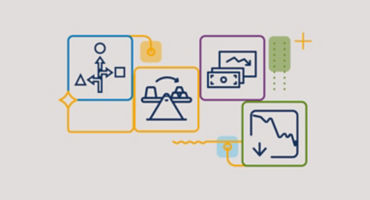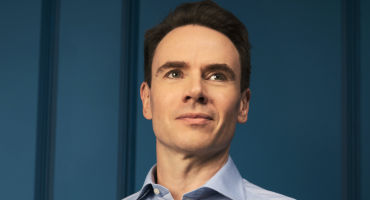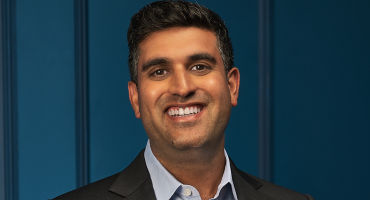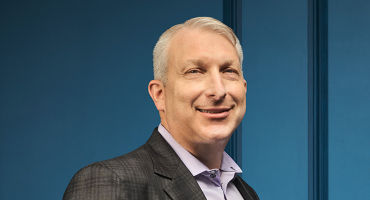- 宏觀策略師
Skip to main content
- 基金中心
- 投資見解
- 關於我們
本刊所載見解反映作者於撰文時的觀點,其他團隊可能觀點各異,或會作出不同的投資決策。閣下投資的價值可能高於或低於初始投資時的水平。本刊所載第三方數據被視為可靠,惟概不保證其準確性。
僅提供英文版本
Here are quick thoughts on some common questions I've been asked recently about Fed policy, yields, the US dollar, and financial markets.
The Fed's mandate is full employment and inflation. It has achieved the first of these objectives but is woefully behind on the second. The so-called "Fed put" for markets worked when inflation was low (the paradigm for the last 30 years), but when inflation is high and unemployment low, the Fed will turn a blind eye to equity market declines as it seeks to protect Main Street rather than Wall Street. Of course, everything changes if there is systemic risk. To regain credibility with angry bondholders, the Fed must be willing to accept a growth penalty in the current situation.
Before reaching that conclusion, I would like to see inflation expectations peak. They may have already, but given energy concerns in Europe and supply-chain bottleneck issues in China, inflation may still have a last hurrah. Also, the US depends on the generosity of strangers to fund its budget deficit, and the Fed's moves certainly have some bondholders thinking about what to do with their allocations. This matters because yields are a function of growth and inflation but also of the demand for and supply of bonds. In a world of low inflation, many countries were willing to fund the US deficits. Now, with a Fed that wishes to unload bonds from its balance sheet and currencies like the yen weakening, we must wait and see the response of these players before assuming yields have peaked, even with the expectation of weaker growth.
It's because of the difference in interest rate policies being determined by the Fed and the other central banks. The European Central Bank is slowly going to follow the Fed, while Japan has doubled down on yield-curve control and China is now actively easing. I would expect the US dollar to peak as interest rate expectations in other nations lift and/or Fed expectations get priced in and US growth slows. For what it's worth, the US dollar often peaks around the first rate hike; that hasn't been the case this time around due to conditions elsewhere, but over time I do expect some relief here.
While inflation is the arbiter that gave value a leg up (energy in particular), it is also the concurrent reaction from the Fed to raise the real rate that penalizes growth stocks. A peak in the real rate and lower nominal growth should help make growth attractive again.
Positive catalysts for earnings would be a softer US dollar, a bottoming in industrial activity globally, and a peak in commodity prices, which would give a lift to many consumer and industrial companies that have been under siege.
Yes! The private sector balance sheets on both the consumer and corporate sides were in good shape coming into the year. Inflation is poised to move lower; while it will take time to get to the 2% target, it is starting to turn. Both Europe and China are facing event-driven downturns; these tend to be deep but quicker to turn. And, as noted, China is now easing, which should lift global growth later this year.
Services over goods consumption is one. Another is beneficiaries of supply-chain improvements in the business and consumer space; here I expect better trends in the second half of this year. With the Russia/Ukraine conflict, there is also renewed demand for energy and agricultural exports from the US. I also see opportunities related to workforce development and education, as well as other areas where there is a relative scarcity of labor, including automation and innovation.
I also think it's worth looking for opportunities outside the US, where markets are cheaper and recessions are already priced in. Many markets tightened earlier and have the space and ability to ease. I'm also looking at the theme of a capital spending cycle, especially if the current rhetoric from Treasury Secretary Janet Yellen about "friend shoring" holds. This could create opportunities among supply-chain beneficiaries in ASEAN countries, Mexico, and countries with commodity assets.

參考網站連結
相關投資見解

三大重點 提升2024年組合潛力
隨著嶄新的投資世代不斷發展,投資者應如何釐清脈絡? 多元資產策略師Nick Samouilhan 認為, 2024年將有三個值得關注的重點:收益率上升、選股的重要性,以及如何就結構轉變作好部署。

亞洲科技:
為環球產業構建所需技術
環球行業分析師Yash Patodia就現時為科技業注入源源動力的兩大主題——生成式人工智能及混合實境,分享當中有何投資機遇,並闡述亞洲何以是創新的基石,以及其認為環球未來增長動力何在。(僅提供英文版本)


行政總裁年度寄語:
放遠目光、邁步向前
經過一整年深遠的經濟及市場變化,行政總裁Jean Hynes論及另類投資與可持續投資的角色、公司對人才的投資以至創新的重要性,就未來路向作一探討。

2023年中國股票投資:
聚焦選股之年
中國股市或有潛在風險,惟股票投資組合經理Bo Meunier(張博)相信,對耐心而慧眼選股的投資者而言,這個領域仍呈現吸引機遇。


不受限制債券基金的三大特質
投資組合經理Brian Garvey及Brij Khurana與投資總監Brian Doherty探討不受限制固定收益策略的三大特質,以至其如何為投資者固定收益組合增值。

面對波動加劇、市場結構改變以至投資數據暴增,或須掌握更多工具方能遊刃其中,威靈頓投資主席Steve Klar分享其見解。

2023年及其後
四大關鍵投資觀點
多元資產策略師兼投資組合經理Nick Samouilhan與投資策略師Michelle Ng(伍韶美)闡述對2023年展望的最新見解,並與投資者分享一些可行的的投資觀點。

參考網站連結
相關投資見解
重要披露
在未有威靈頓投資管理明確書面批准的情況下,概不可複製或轉載本刊全部或任何部分內容。本文件僅供參考之用,並非任何人士要約或邀請認購威靈頓投資管理(盧森堡)SICAV基金III系列的股份。本文件所載資料不應被視為投資建議,亦非買賣任何股份之推介。基金投資不一定適合所有投資者。所載見解反映作者於撰文時的觀點,可予更改而不作另行通知。投資者於作出投資決定前,務請細閱基金及子基金的產品資料概要、基金招股章程及香港說明文件,以了解詳情(包括風險因素),其他有關文件包括年度及半年度財務報告。
由威靈頓管理香港有限公司刊發。投資涉及風險。過去業績並不代表將來表現。本文件未經香港證券及期貨事務監察委員會審閱。